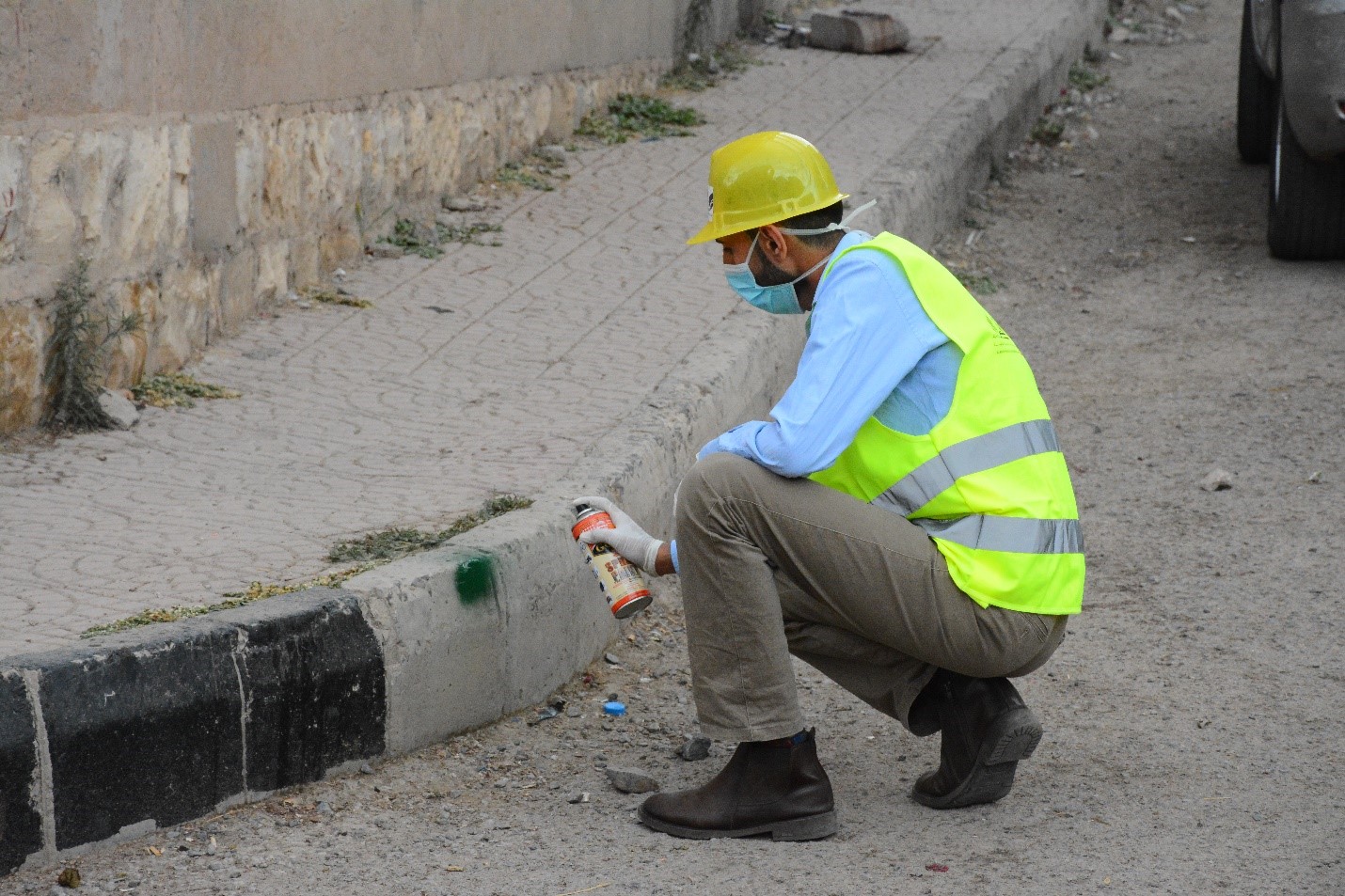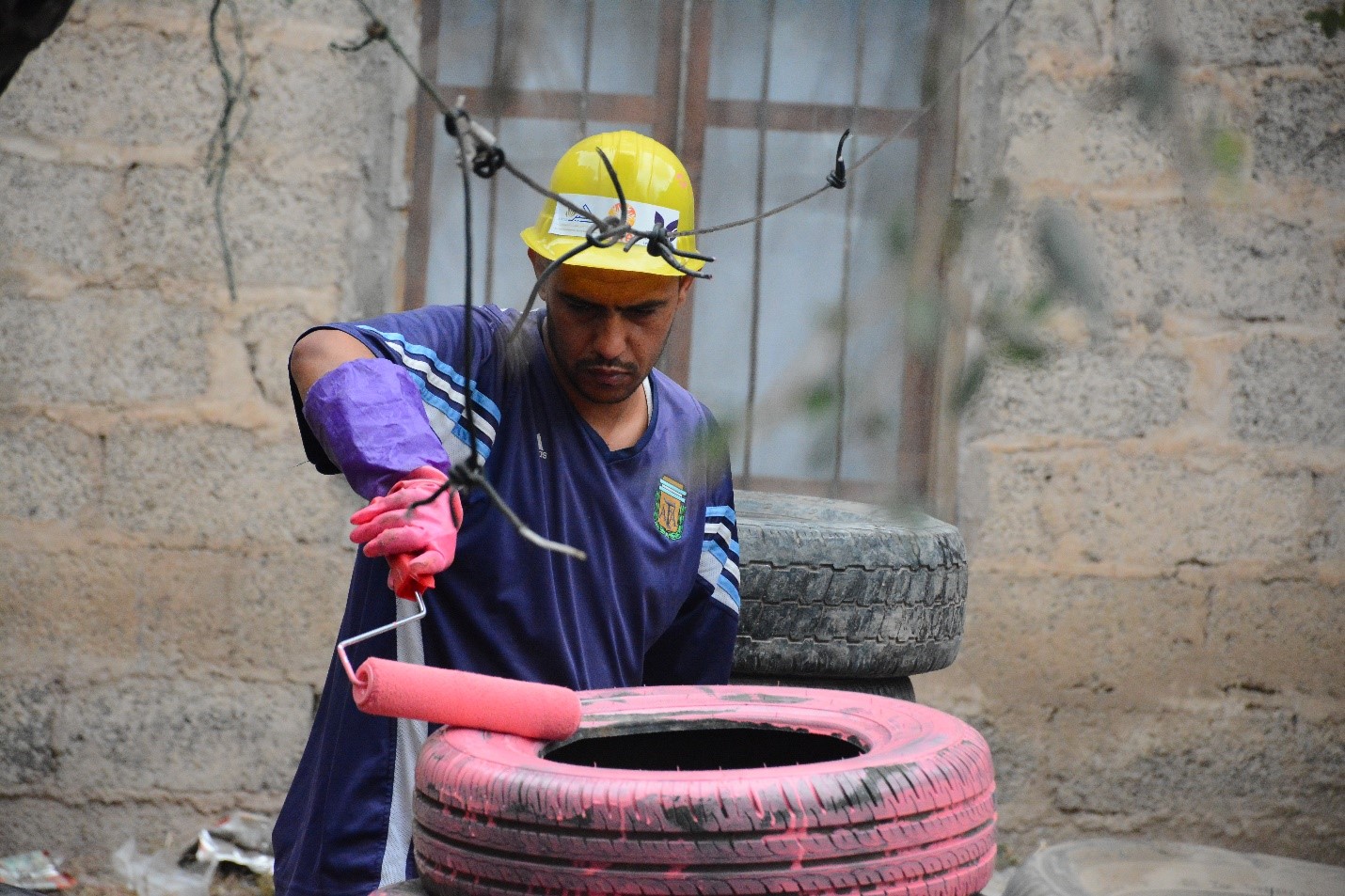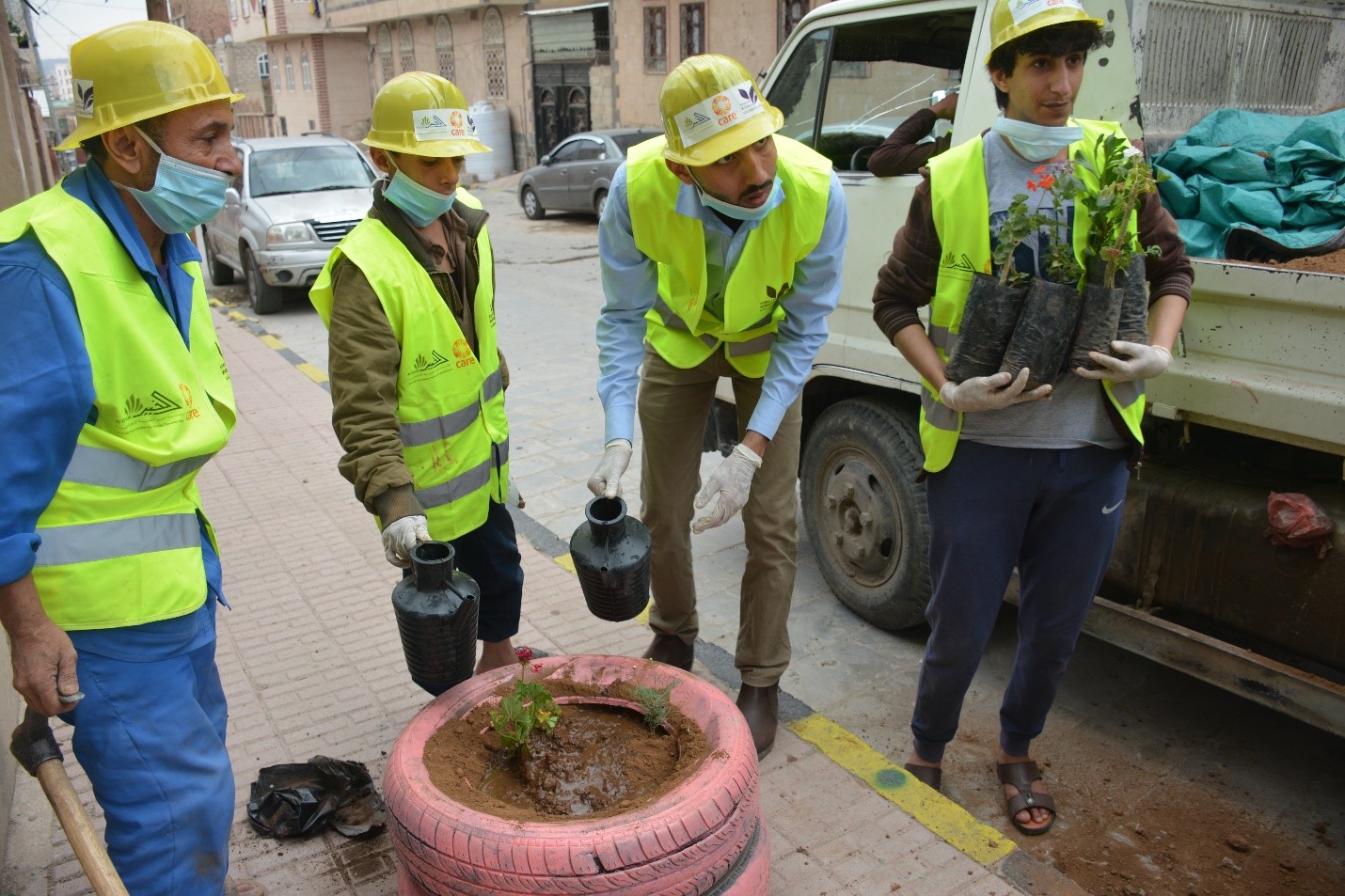Poor management of solid waste poses a real danger to the health of residents. The contaminated waste contains hazardous chemicals that can cause many diseases, including cholera, dengue fever and the latest Covid-19. Although recycling is fairly new in Yemen, a small scale recycling work to plastic, metal and glass has begun recently. Street cleaners and waster collectors gather plastic, metal and other reusable materials from the streets and sell them to merchants. The latter sends the compost to factories for recycling.
Speaking about his community initiative to help the locals in his area, Ismail says: “I informed a group of friends in the neighbourhood about the recycling initiative to clean the area, and they delightfully agreed to help. However, we didn’t have the needed expertise to team up and work toward that goal.”
With funding from Reach Out To Asia (ROTA), CARE supported youth initiatives in Amanat Al Asimah governorate to tackle key challenges in their communities. Through the Foundation for Yemen’s Future project, CARE built the capacity of 75 participants to start their community initiatives.
“Thanks to CARE, we trained and got the necessary skills to launch our initiative,” says Ismail. “We learned a lot about recycling, how to be a recycling advocate and organize within the community to start the implementation process.”
Ismail and his friends work to collect unused tires, clean them and use them as planters to beautify their neighbourhood. In addition, the group distributed saplings and educated the recipients on the importance of planting trees and how to take care of them. “While we were planting the saplings, the community members were so cooperative and helped us in collecting tires and planting the saplings,” adds Ismail.
“I hope that we can receive more support and training sessions,” says Ismail. “I also hope that the idea of recycling and planting spreads all around Yemen,” he concludes.
Plastics are everywhere. They are cheap, convenient and light. However, we have to recognize that our addiction to plastics, especially single-use plastics, which we use only for a few minutes but can last up to hundreds of years in our environment, is leading to serious consequences. From changing our habits to encouraging a shift to a circular economy, we need to completely change the way we use plastics.




